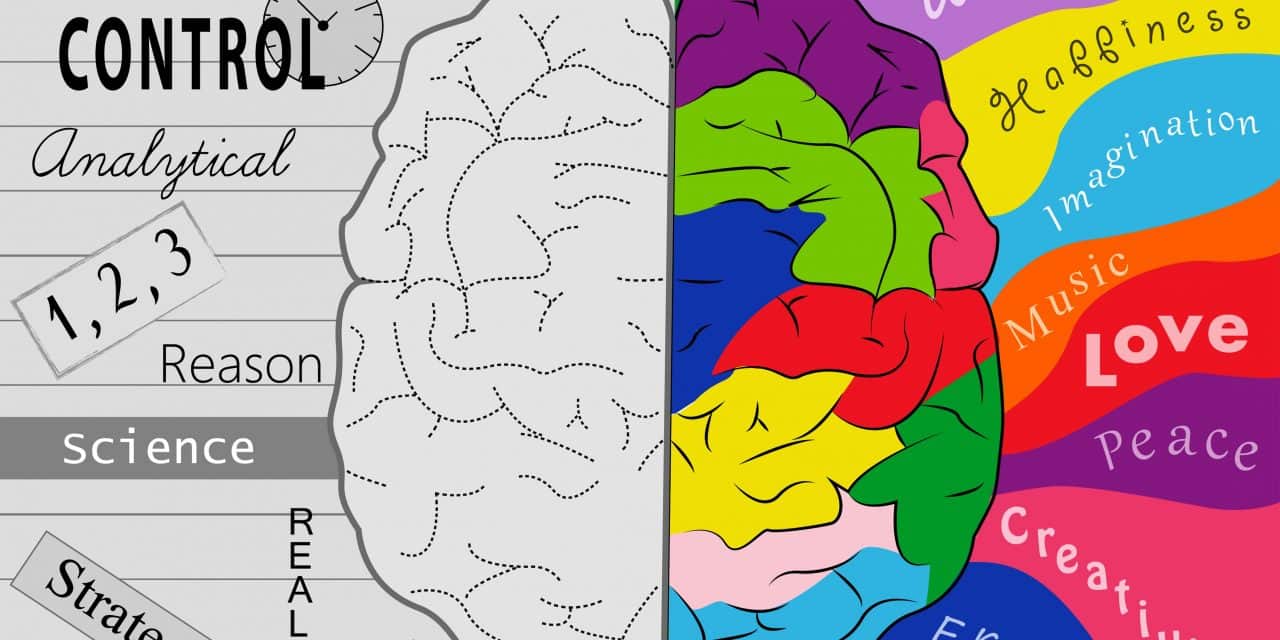“This Thinking Stuff Always Messes Up!”

These were the words of one of my patients who experienced a bit of a set-back a few weeks ago. Why would he announce this with such strength and certainty? Isn’t thinking a good thing?
Thinking is a Double-Edged Sword
One Side of the Sword: In many ways, we humans (as far as we can ascertain) have the capacity to ‘think’ in ways that exceed all our other fellow travelers on this planet. We can learn languages, and then use this to learn about math, science, computers, literature and move to any topic of interest.
We can think about the future, the past, build something in our minds before we ever touch a tool and imagine solutions to problems that can change the world. Used in these ways, the thinking mind is powerful and too often taken for granted.
We can also draw conclusions with our thinking, and this becomes a belief. Beliefs are like ‘thinking on steroids’ as they become massive, powerful magnets, serving to automatically attract thoughts that support that belief.
Because this happens instantly, beliefs now predict not only our thoughts but our actions and behavior. This can lead to conclusions about possibilities that drive new behavior, inspire life-changing research and create solutions to problems that make life more rewarding.
We can also use this amazing mind to think positively about ourselves and our lives. We can conclude we are fortunate, blessed and find beauty in each moment. We can conclude that we are always on the right path, adjusting when needed. We can even decide we are good at life, figuring out the things that are critically important…when the time comes. We can come to know ourselves as inherently good and find thinking supports us. From looking at the research, this is a relatively uncommon path for humans to take, however. Yet, when doing so, our thinking can again support us. When we see all this, it’s hard not to be a fan of this thinking mind!
The Other Side of the Sword: As appears true wherever we turn, any powerful tool can be a force for good or evil. The same is true for thinking.
The same thinking that builds solutions and brings peace can bring destruction and war. Thinking can be directed toward actions that hurt others, that judge others and justify being harsh or punitive. Brilliant ideas can be distorted to make the powerful more controlling and harm those who disagree or appear as threats.
Beliefs allow us to segregate, put whole groups into simple categories, and even smile when victory harms others.
Yet, this is not why my client proclaimed, “This thinking stuff always messes me up!”
He was referring to thinking that is directed toward himself and his life and is the cause for most of our mental torture. Even though (as mentioned above) we can use thinking to be a positive force in our lives, we often fall prey to thoughts that become problematic. We think about what happened to us, and blame others for what they did. We think about our mistakes and feel guilty and ashamed. We think about what we could have done differently, and torture ourselves.
We can use thinking to complain about any aspect of life, and instantly we are the victims. The more we complain, the more we victimize ourselves unknowingly. The thinking in complaining ways leaves us focused on commentary about what the world is doing, what others have done or even what God is doing wrong. We can conclude the world is not fair, and think this over and over. In all of this, there is inherent victimization, negative feelings and most importantly…a focus outside our sphere of influence. We can even complain about ourselves over and over. We get ‘stuck.’
We can also let fear take over our thinking, and then we worry about the future. We get anxious about the traffic, being late for work, paying the bills, what the kids are doing and even the possibility that we left the coffee pot on. Worry and anxiety can take over our lives because the ‘what if’ possibilities are never resolved. We again get caught focused on events over which we have no immediate control, and are again ‘stuck.’
We make conclusions about ourselves, and now use beliefs in harmful ways. We can conclude that we are unworthy, depressed, angry or unattractive. These magnetic beliefs auto-magically pull in more and more thoughts that support and justify the belief, even though this causes us to suffer. Now, when we wake up (without tools to change those beliefs), our destiny is 95% predetermined. Our thoughts will follow a pattern automatically, as the beliefs trigger the same thoughts and actions day in and day out.
What’s a Human to Do?
There are ways to get around this trap, where our thinking doesn’t support us. And there are reasons why some simple solutions are repeatedly proven to be of value.
Those with the most value, however, require the most consistent effort. This should not surprise us, as these thinking habits evolve over decades and yet we want them resolved in minutes. It doesn’t work that way. In part II, I will dig into some options to tame this thinking mind…when the thoughts are not serving us. Look for details here: Part II




